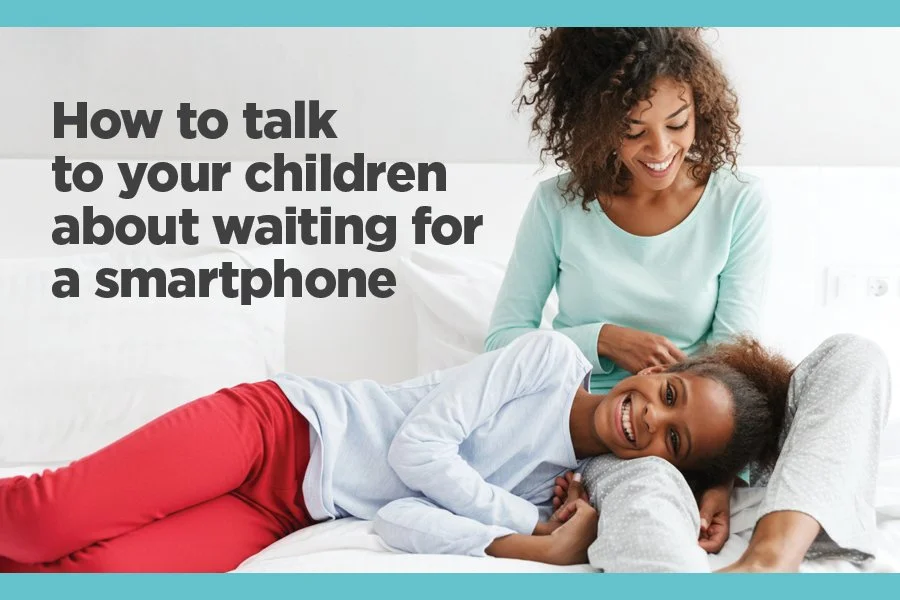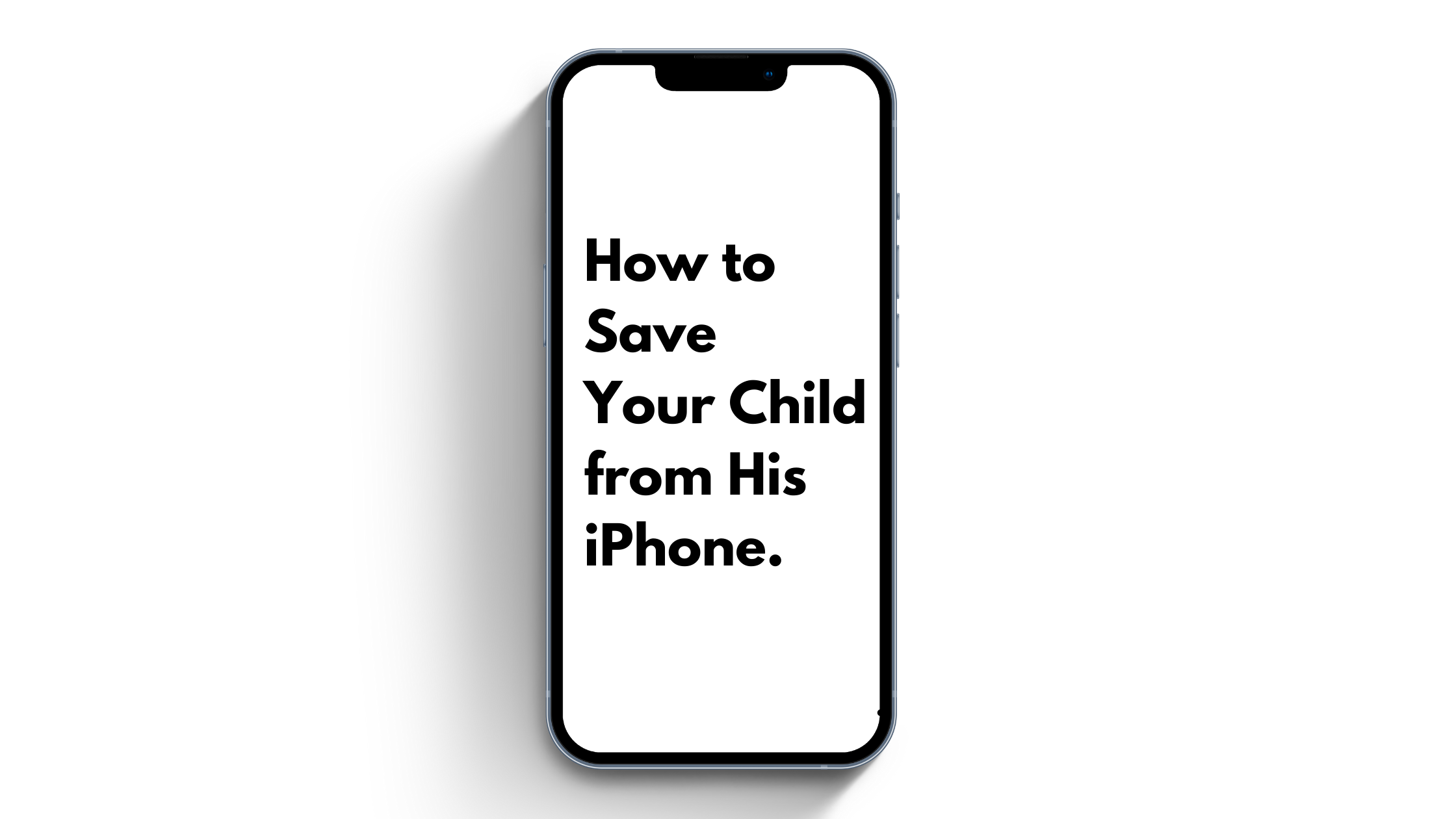Wait Until 8th Blog
Welcome to the Wait Until 8th blog! Here you'll find the latest information and resources on smartphones, social media and all things tech! Don’t want to miss a post? Sign up here.
Deciding when kids should get a smartphone is a major parenting challenge today. This guide shares 20 simple, age-appropriate ways to explain why your family is waiting—covering topics like online safety, mental health, brain development, social pressure, and the benefits of staying present and connected in real life. With clear talking points and supportive language, this article helps parents set healthy tech boundaries while protecting childhood and strengthening family relationships.
Wondering how to talk to other parents about delaying smartphones? You're not alone—and the conversation matters more than ever. This guide offers practical tips, conversation starters, and key points to help you approach the topic with empathy and confidence. Together, we can shift the norm, build community, and protect what matters most: childhood.
Research is crystal clear: Instagram has negatively affected a generation of children. Multiple studies—including internal research conducted by Meta (Instagram’s parent company)—have documented the platform's harmful impact on young users. To address these risks, Instagram introduced a feature called Supervision, designed to give parents more insight into and control over their teen’s experience on the platform. The problem is most parents aren’t using It. Parents—if your teen is on Instagram, it’s crucial to set up Supervision. Learn how with our parent's guide to Supervision.
I don’t know about you, but I have spent ALOT of time trying to thread the needle between allowing my kids a way to explore music and also protecting them from content they are not ready for.
To get to the point, none of the music apps provide perfect solutions. They are all at least little bit risky. Here’s what parents need to know about 4 of the most popular.
Recently, the Netflix series Adolescence became one of the platform’s most-watched limited series. It tells the fictional story of a 13-year-old boy whose descent into online misogyny and emotional isolation ends in tragedy.
The series captures with haunting accuracy the quiet erosion of connection, empathy, and safety that can happen because our kids are growing up online — especially when they’re alone with big emotions and unfiltered content. If you're parenting a tween or teen right now, read this blog for the most important takeaways from the show.
Kids get interested in sending text based messages pretty early these days. Text Based Messaging is likely one of the first forms of digital communication a kid will try. Consider these dangers, tips and the unexpected places texting can happen.
In today’s digital age, teaching our children healthy screen habits is essential for their well-being. Creating boundaries around screen time doesn’t mean saying “no” to technology—it means setting up supportive guidelines that help kids thrive both online and offline. Here are some key boundaries that promote resilience, emotional regulation, social skills, and overall wellness.
Our family delayed social media until 16. We’ve now allowed one platform, and the choice may surprise you. There are many reasons to say no to Instagram, Snapchat, and Tik Tok when your kids ask. For years, the answer to my oldest daughter was no. Not yet. You are not ready. I am not ready. We are not ready.
Children are not ready for the comparison, self-doubt, violet imagery, toxic beauty content, dangerous challenges, online predators, and everyone else’s highlight reel of perfection on these platforms.
I have a running list of tricky tricks that kids have employed to get around digital parenting rules.
This post is not the full list, but its a good place to start.
I am not sharing this list to create a panic. I am sharing to raise awareness. If parents understand more about some of the sneaking behaviors out there, they are more likely to sense trouble should it arise.
This story shows the power in parents coming together to advocate for change!
In our town there is an annual 5th grade field trip 2 hrs away. This is a much anticipated adventure as well as a beloved tradition that marks the end of elementary and the transition to middle school.
The thought had not crossed my mind that personal internet-enabled devices could be an issue on the bus. In our school the policy is that personal devices like a smartphone must be powered down and out of sight for the school day.
So I was surprised when a fellow 5th grade mom reached out to share that her daughter was in knots because she didn't have a smartphone for the trip. Her daughter was consumed by anxiety because kids with phones and ipads were using the devices to entice friends to sit with them, making plans about what they'll watch or do. This girl said to her mom: "I have nothing to offer."
Kids want to be on social media. They feel significant social pressure, especially when “everyone else” seems to have access. But the benefits don’t outweigh the risks. Not by a long shot. This is my best advice on how and why to say no.
Dearest almost third grader,
I write this letter as much for you as I do for myself, in the hopes that the power of the written word will bind me to everything I’m about to lay out. Because inevitably, you’ll soon claim that my refusal to get you a phone is impinging on your ability to make friends, keep friends, do schoolwork, teleport into a classmate’s house via avatar — lord knows where we’ll be by then. And so, our family’s 10 commandments around phones — drawn in part by the research I did for my first book, for which I consulted myriad experts about the effects of technology on parenting — explaining why you and your siblings will not be getting a phone until high school.
My name is Katelyn Moore and I am 16. When I was in 4th grade, all of my classmates began acquiring smartphones. When I asked my parents for one, their response was “What is your why behind wanting one?”
This question surprised me and I answered with “All my friends have one, I feel left out when they are on theirs, etc.” And while they understood where I was coming from they clarified that they didn’t see the need for one at that point in my life.
My high school senior does not have a smartphone. In fact, she only got a “dumb phone” when she turned 16 and got her driver’s license. Of course, she wishes she had an iPhone like almost everyone else, but she is flourishing in her social life and other endeavors. I’m writing this for those parents whose hearts are telling them to go against the grain with their children and phones.
Momentum is building across the country to delay smartphones and social media! In the past few weeks, more than 2,000 parents have signed the Wait Until 8th pledge. The pledge is flourishing in big cities, suburbs, small towns, public schools and private schools.
The Wait Until 8th pledge is spreading like wildfire in the community of Fairfield, Connecticut! Over the past few weeks, more than 200 families have said yes to delaying the smartphone for their children!
How does the pledge gain momentum in a community? It usually starts with one parent championing the pledge and encouraging other parents to delay the smartphone together. In Fairfield, Keri Langerman is spreading the word to parents in her community.
Are you about to say yes to a smartphone for your child? If so, make sure your child is ready for this responsibility. We have a new family phone plan to read together outlining healthy boundaries and what should not be on the phone to start.
Parents from across the country have reached out asking for help. It is a new school year and many kids have a smartphone for the first time. Other families are struggling with how to reduce phone time after many hours logged over summer break.
Learning how to manage parental controls and establish healthy boundaries can be overwhelming. Regardless if you want to setup your kid’s new iPhone for success, or if you want to rein in how your child is using her phone, we are here to help.
Through a compelling story, psychiatrist Dr. Adriana Stacey warns parents about giving smartphones to young children. Imagine this. Your 14-year-old daughter comes to you to ask you if she can go to this big event Downtown. She wants you to drop her off there with some of her friends. You start to ask some questions...
We've entered May madness. Hang in there. The finish line is close.
One message I want to shout from the rooftop during this busy season is for every coach, teacher, parent, and youth group leader to please not assume all kids are on social media.
My heart physically hurts after reading a week's worth of messages from being out of town for spring break. Parents and school administrators often reach out to us with tragic stories concerning smartphones and social media. My inbox was overflowing.
Artificial intelligence (AI) is now available to the masses, and kids (especially teens) are eagerly exploring and taking advantage of it. Like all tech, there are upsides and downsides to navigate, especially for young developing minds that benefit from the “friction” of the learning process. Together with your child, set some basic guidelines for how to appropriately use ChatGPT.
My youngest daughter turns 10 today.
Ten is the average age children receive a smartphone.
There is no phone for my love to unwrap today though. Snapchat, BeReal, TikTok and Instagram will have to wait too.
After 14 years as a high school teacher, this teacher decided to move on because "school as an institution is now broken for a very specific reason."
"Students have access to all of earth’s entertainment, information and communication at all times. People now block their ears and only listen to the sounds they want to hear. They block their eyes with images that they want to see."
Maya is smart, hardworking and kind. She’s happy with herself and who she is. Things start to change in seventh grade when she downloads Instagram. What she thought matters changes.
A challenge many parents struggle with is the amount of time their kids spend on their phones. Teens spend an average of seven hours and 22 minutes on their phones a day, and tweens -- ages 8 to 12 -- are at four hours and 44 minutes daily, according to a report by Common Sense Media.
Regardless if you are in the middle of a smartphone battle in your home or you want to setup your kid’s new iPhone for success, we are here to help. These tips can be used on an iPad too if you are trying to reduce time spent on a tablet.
The iPhone 11 is at the top of most children’s wish list. Some kids refuse to put anything else on it declaring, “all I want for Christmas is an iPhone.” Nostalgia is heavy for lists overflowing with requests for Barbies, Batman figures, Legos and Hot Wheels. When did our kids stop being kids and start asking for gadgets designed for adults? And how can we be the Christmas hero but hold the line on granting the smartphone wish?
Peek behind the world of an eleven year old boy before and after he has been gifted a smartphone. The difference is vast and should give any parent pause before making the decision to give such a powerful device to a child.
One Mom shares a letter with her daughter explaining why she is not getting a smartphone for her 12th birthday.
Technology titans are issuing startling warnings about the dangers of social media and excess screen time for kids. Many parents are asking what they should do about screen time and their kids. Our simple, shorthand answer: “Parent like a tech exec.” You see, technology executives aren’t just raising the alarm about the dangers of screens and devices; they’re instituting new practices in their own families to guard against those dangers and equip their kids to thrive in this brave new tech world.































